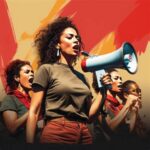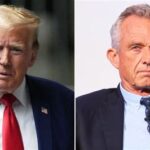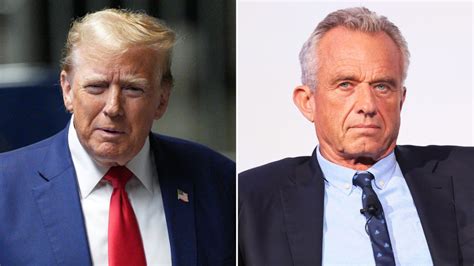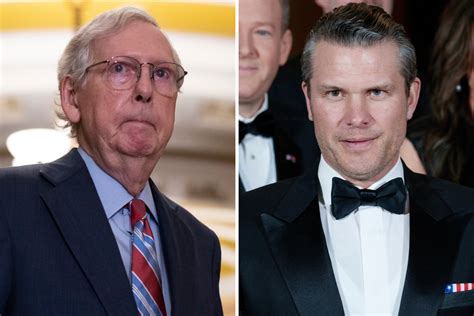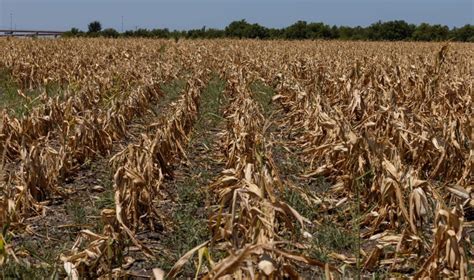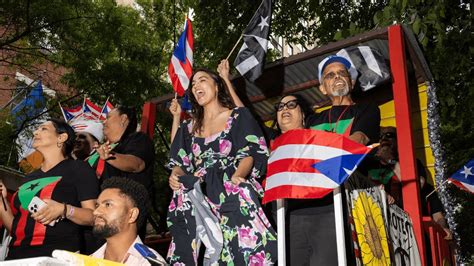
Laura Loomer faced widespread criticism after appearing to body shame U.S. Representative Alexandria Ocasio-Cortez at the National Puerto Rican Day Parade in New York City on Sunday, sparking outrage across social media platforms.
Conservative political activist Laura Loomer ignited a firestorm of controversy after targeting U.S. Representative Alexandria Ocasio-Cortez (AOC) with what many perceived as body-shaming remarks at the National Puerto Rican Day Parade in New York City on Sunday. Loomer’s actions, captured in videos circulating online, quickly drew intense backlash from a wide range of commentators, political figures, and social media users, who condemned her behavior as inappropriate and disrespectful. The incident has underscored the growing tensions surrounding political discourse and the increasing scrutiny of public figures’ conduct in the digital age.
The controversy began when Loomer attended the parade and positioned herself to confront Ocasio-Cortez, who was participating in the event. Videos show Loomer shouting comments directed at the congresswoman, with many interpreting these remarks as critical of Ocasio-Cortez’s physical appearance. While the exact phrases used by Loomer vary slightly across different accounts, the general sentiment conveyed was widely considered to be disparaging.
“Loomer faces internet backlash after body shaming AOC at Puerto Rican Day parade,” a headline from Yahoo News highlighted, summarizing the immediate fallout from the incident.
Social media platforms erupted with responses, with many users expressing support for Ocasio-Cortez and denouncing Loomer’s behavior. Critics accused Loomer of engaging in personal attacks that detract from substantive political debate and contribute to a toxic online environment. Supporters of Ocasio-Cortez rallied to her defense, emphasizing her accomplishments and contributions to her constituents and the broader political landscape.
The incident also reignited discussions about the role of public figures in setting standards for respectful discourse. Many commentators argued that individuals with a platform, whether political figures or activists, have a responsibility to engage in constructive dialogue rather than resorting to personal attacks. The controversy serves as a reminder of the potential consequences of online behavior and the importance of promoting civility in public discourse.
The National Puerto Rican Day Parade, an annual celebration of Puerto Rican culture and heritage, has historically been a venue for community solidarity and cultural expression. The presence of political figures such as Ocasio-Cortez is a common occurrence, reflecting the parade’s significance as a platform for engaging with constituents and addressing issues relevant to the Puerto Rican community. Loomer’s decision to use the parade as an opportunity to confront Ocasio-Cortez drew criticism for disrupting what many viewed as a celebration of cultural pride and unity.
Laura Loomer, known for her controversial and often provocative political activism, has a history of making headlines for her outspoken views and confrontational tactics. Her past actions have included targeting political opponents, engaging in anti-Muslim rhetoric, and promoting conspiracy theories. Loomer’s background as a right-wing commentator and activist provides context for her actions at the parade, highlighting her consistent pattern of challenging mainstream political figures and institutions.
Alexandria Ocasio-Cortez, a prominent figure in the Democratic Party, has often been the target of criticism from conservative media outlets and political opponents. Her progressive policies and outspoken advocacy have made her a lightning rod for controversy, and she has frequently faced personal attacks and disparaging comments. The incident involving Loomer is just one example of the challenges Ocasio-Cortez faces as a high-profile political figure navigating a polarized political landscape.
The responses to Loomer’s actions have been varied, reflecting the deep divisions within American society. Supporters of Loomer have defended her right to express her views, arguing that she is simply holding Ocasio-Cortez accountable for her political positions. Critics, on the other hand, have condemned Loomer’s behavior as disrespectful, inappropriate, and harmful to public discourse. The debate over Loomer’s actions highlights the ongoing struggle to balance freedom of speech with the need to promote civility and respect in political debate.
The incident has also raised questions about the role of social media in amplifying and exacerbating political controversies. The rapid spread of videos and commentary related to Loomer’s actions demonstrates the power of social media to shape public opinion and influence the course of political events. While social media can be a valuable tool for disseminating information and facilitating dialogue, it can also contribute to the spread of misinformation and the intensification of political polarization.
As the controversy continues to unfold, it remains to be seen what impact it will have on the broader political landscape. The incident serves as a reminder of the challenges facing American society as it grapples with issues of political division, social media influence, and the role of public figures in shaping public discourse. The debate over Loomer’s actions is likely to continue for some time, as individuals and institutions weigh the competing values of freedom of speech, civility, and respect.
The incident also brings into focus the broader issue of body shaming and its impact on individuals and society. Body shaming, the act of criticizing or mocking someone’s physical appearance, can have serious consequences for mental and emotional health. Studies have shown that body shaming can lead to feelings of shame, anxiety, depression, and low self-esteem. The prevalence of body shaming in media and popular culture contributes to unrealistic beauty standards and can perpetuate harmful stereotypes.
In the context of political discourse, body shaming can be used as a tool to undermine and discredit individuals based on their physical appearance rather than their ideas or qualifications. This type of attack is particularly harmful because it distracts from substantive debate and reinforces biases and prejudices. The incident involving Loomer and Ocasio-Cortez underscores the need to challenge and condemn body shaming in all its forms, and to promote a culture of body positivity and acceptance.
Furthermore, the incident highlights the gendered nature of political attacks. Female politicians often face disproportionate levels of scrutiny and criticism regarding their appearance, clothing, and personal lives. This type of commentary can be seen as a way to undermine their authority and credibility, and to discourage women from participating in politics. The incident involving Loomer and Ocasio-Cortez is a reminder of the challenges women face in the political arena, and the need to address gender bias and discrimination in all aspects of society.
The controversy also raises questions about the responsibilities of media outlets and social media platforms in addressing harmful content. While these platforms have a commitment to freedom of speech, they also have a responsibility to protect their users from harassment and abuse. Many social media platforms have policies in place to address hate speech and bullying, but the enforcement of these policies can be inconsistent and ineffective. The incident involving Loomer and Ocasio-Cortez underscores the need for media outlets and social media platforms to take a more proactive role in combating harmful content and promoting a more respectful online environment.
In conclusion, the controversy surrounding Laura Loomer’s actions at the National Puerto Rican Day Parade highlights the complex challenges facing American society. The incident underscores the need to promote civility and respect in political discourse, to challenge body shaming and gender bias, and to address the harmful effects of social media. As the debate over Loomer’s actions continues, it is important to remember the values of freedom of speech, equality, and respect for all individuals.
Expanded Context and Background Information:
Laura Loomer’s Background and Political Activism:
Laura Loomer is a controversial figure known for her far-right political activism and commentary. She has a history of making inflammatory statements and engaging in confrontational tactics. Loomer gained prominence through her work as a journalist for various conservative media outlets, including Breitbart News and The Rebel Media.
Loomer’s activism often focuses on issues related to immigration, Islam, and political correctness. She has been banned from numerous social media platforms, including Twitter, Facebook, and Instagram, for violating their policies on hate speech and misinformation. Her ban from Twitter came after she made disparaging remarks about Representative Ilhan Omar, a Somali-American Muslim congresswoman.
Loomer has also been involved in several high-profile incidents, including disrupting political events and staging protests. She once handcuffed herself to the doors of Twitter’s headquarters in New York City to protest her ban from the platform. Her actions have drawn both praise and criticism, with supporters defending her right to free speech and critics condemning her inflammatory rhetoric.
Alexandria Ocasio-Cortez’s Political Career and Advocacy:
Alexandria Ocasio-Cortez, often referred to as AOC, is a prominent figure in the Democratic Party known for her progressive policies and outspoken advocacy. She represents New York’s 14th congressional district, which includes parts of the Bronx and Queens. Ocasio-Cortez gained national attention after defeating incumbent Congressman Joe Crowley in the 2018 Democratic primary.
Since entering Congress, Ocasio-Cortez has been a vocal advocate for issues such as climate change, income inequality, and affordable healthcare. She has championed policies such as the Green New Deal, a comprehensive plan to address climate change and create jobs. Ocasio-Cortez is also known for her active use of social media, where she engages with her constituents and shares her views on political issues.
Ocasio-Cortez has faced frequent criticism from conservative media outlets and political opponents. She has been targeted with personal attacks and disparaging comments, often related to her background, her policies, and her physical appearance. Despite these challenges, Ocasio-Cortez remains a prominent and influential figure in American politics.
The National Puerto Rican Day Parade:
The National Puerto Rican Day Parade is an annual celebration of Puerto Rican culture and heritage held in New York City. The parade typically takes place on the second Sunday of June and attracts millions of participants and spectators. The event features music, dance, floats, and cultural performances, showcasing the rich traditions and contributions of the Puerto Rican community.
The parade has a long history, dating back to 1958 when it was first organized by a group of Puerto Rican community leaders. Over the years, the parade has evolved into a major cultural event that celebrates Puerto Rican identity and promotes community pride. The parade also serves as a platform for addressing issues relevant to the Puerto Rican community, such as economic development, education, and political representation.
The National Puerto Rican Day Parade has often been attended by political figures, including members of Congress, state and local officials, and community leaders. These individuals participate in the parade to show their support for the Puerto Rican community and to engage with constituents. The presence of political figures at the parade underscores its significance as a venue for community solidarity and cultural expression.
Body Shaming and its Impact:
Body shaming is the act of criticizing or mocking someone’s physical appearance. It can take many forms, including making negative comments about someone’s weight, body shape, or physical features. Body shaming can occur in person, online, or through media representations.
Body shaming can have serious consequences for mental and emotional health. Studies have shown that body shaming can lead to feelings of shame, anxiety, depression, and low self-esteem. It can also contribute to eating disorders, body dysmorphia, and other mental health problems. The prevalence of body shaming in media and popular culture contributes to unrealistic beauty standards and can perpetuate harmful stereotypes.
In the context of political discourse, body shaming can be used as a tool to undermine and discredit individuals based on their physical appearance rather than their ideas or qualifications. This type of attack is particularly harmful because it distracts from substantive debate and reinforces biases and prejudices. The incident involving Loomer and Ocasio-Cortez underscores the need to challenge and condemn body shaming in all its forms, and to promote a culture of body positivity and acceptance.
The Role of Social Media in Political Discourse:
Social media platforms have become increasingly influential in shaping political discourse. These platforms provide a space for individuals to share their views, engage in discussions, and organize political action. Social media can be a valuable tool for disseminating information and facilitating dialogue, but it can also contribute to the spread of misinformation and the intensification of political polarization.
One of the challenges of social media is the lack of accountability and the prevalence of anonymous accounts. This can lead to the spread of hate speech, harassment, and other forms of online abuse. Social media platforms have policies in place to address these issues, but the enforcement of these policies can be inconsistent and ineffective.
The incident involving Loomer and Ocasio-Cortez highlights the role of social media in amplifying and exacerbating political controversies. The rapid spread of videos and commentary related to Loomer’s actions demonstrates the power of social media to shape public opinion and influence the course of political events. As social media continues to play an increasingly important role in political discourse, it is important to address the challenges and opportunities it presents.
The Gendered Nature of Political Attacks:
Female politicians often face disproportionate levels of scrutiny and criticism regarding their appearance, clothing, and personal lives. This type of commentary can be seen as a way to undermine their authority and credibility, and to discourage women from participating in politics. The incident involving Loomer and Ocasio-Cortez is a reminder of the challenges women face in the political arena, and the need to address gender bias and discrimination in all aspects of society.
Studies have shown that female politicians are more likely to be judged on their appearance than their male counterparts. This can create a double standard, where women are expected to be both competent and attractive, while men are primarily judged on their competence. The focus on appearance can distract from substantive policy debates and can perpetuate harmful stereotypes about women’s roles in society.
Addressing the gendered nature of political attacks requires a multifaceted approach. This includes challenging sexist and misogynistic comments, promoting positive representations of women in politics, and supporting policies that promote gender equality. By creating a more inclusive and equitable political environment, we can encourage more women to participate in politics and to contribute their unique perspectives and experiences.
The Responsibilities of Media Outlets and Social Media Platforms:
Media outlets and social media platforms have a responsibility to address harmful content and to promote a more respectful online environment. While these platforms have a commitment to freedom of speech, they also have a responsibility to protect their users from harassment and abuse. Many social media platforms have policies in place to address hate speech and bullying, but the enforcement of these policies can be inconsistent and ineffective.
Media outlets also have a responsibility to report on political events in a fair and accurate manner. This includes avoiding sensationalism and bias, and providing context and background information to help readers understand the issues. Media outlets should also be mindful of the potential impact of their reporting on individuals and communities, and should strive to promote dialogue and understanding.
Addressing harmful content and promoting a more respectful online environment requires a collaborative effort. This includes working with law enforcement, community organizations, and other stakeholders to develop and implement effective strategies. By taking a proactive role in combating harmful content, media outlets and social media platforms can help to create a more positive and inclusive online environment.
Frequently Asked Questions (FAQ):
-
What exactly did Laura Loomer say to Alexandria Ocasio-Cortez at the Puerto Rican Day Parade?
- While specific verbatim quotes are not universally agreed upon across reports, accounts indicate Loomer shouted comments directed at Ocasio-Cortez that were widely interpreted as critical of her physical appearance, constituting body shaming. The comments were perceived as disrespectful and inappropriate by many observers.
-
Why did Laura Loomer target Alexandria Ocasio-Cortez at the parade?
- Laura Loomer has a history of targeting political opponents, particularly those with differing ideologies. Her actions appear to be a continuation of her pattern of challenging mainstream political figures and institutions, using confrontational tactics to express her views.
-
What has been the response from Alexandria Ocasio-Cortez regarding the incident?
- The provided source article does not include a direct response from Alexandria Ocasio-Cortez regarding the incident.
-
What are the potential legal or professional consequences for Laura Loomer as a result of her actions?
- The source article does not indicate any specific legal or professional consequences resulting directly from this incident. However, Loomer has faced bans from various social media platforms in the past for violating their policies on hate speech and misinformation. The repercussions for her actions primarily involve public criticism and reputational damage.
-
How does this incident reflect broader issues in American political discourse?
- This incident reflects the increasing polarization of American political discourse, the use of personal attacks and body shaming as political tools, and the challenges of maintaining civility and respect in public debate. It also highlights the role of social media in amplifying these issues and the need for media outlets and social media platforms to address harmful content.
